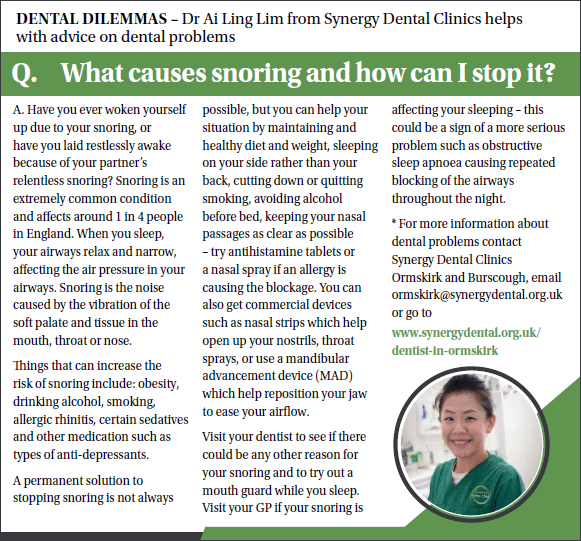Have you ever woken yourself up due to your snoring, or have you laid restlessly awake because of your partner’s relentless snoring? Snoring is an extremely common condition and affects around 1 in 4 people in England. When you sleep, your airways relax and narrow, affecting the air pressure in your airways.
Snoring is the noise caused by the vibration of the soft palate and tissue in the mouth, throat or nose. Things that can increase the risk of snoring include: obesity, drinking alcohol, smoking, allergic rhinitis, certain sedatives and other medication such as types of anti-depressants.
A permanent solution to stopping snoring is not always possible, but you can help your situation by maintaining and healthy diet and weight, sleeping on your side rather than your back, cutting down or quitting smoking, avoiding alcohol before bed, keeping your nasal passages as clear as possible – try antihistamine tablets or a nasal spray if an allergy is causing the blockage.
You can also get commercial devices such as nasal strips which help open up your nostrils, throat sprays, or use a mandibular advancement device (MAD) which help reposition your jaw to ease your airflow.
Visit your dentist to see if there could be any other reason for your snoring and to try out a mouth guard while you sleep. Visit your GP if your snoring is affecting your sleeping – this could be a sign of a more serious problem such as obstructive sleep apnea causing repeated blocking of the airways throughout the night.

